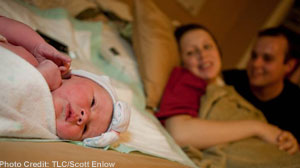With tales of celebrity and pageant queen sex tapes filling the airways, it surprises me that VH1’s “Sex Rehab with Dr. Drew,” the cousin of the network’s “Celebrity Rehab,” has drawn so much negative fire, with many critics deeming it pure voyeurism and posters on message boards dubbing Dr. Drew a media whore and declaring him no better than Dr. Phil.
Jennifer Armstrong’s critique in Entertainment Weekly, entitled “Does Sex Rehab go too Far,” particularly struck me. “VH1’s “Sex Rehab with Dr. Drew” might be the most voyeuristic show on television,” Armstrong writes. “It aims for gravitas, with the good doctor lecturing [the cast] about STDs and drawing out intimate revelations about sexual abuse and rape. But putting a bunch of attractive professional spotlight-seekers together in a house with other hot sex addicts and cameras hardly seems the best way to get these folks to kick their addiction.”
But, I would challenge Ms. Armstrong in her casual assessment of the value of the show.
Many Americans still think that compulsive sexual behavior–commonly known as sex addiction–is a joke and that those that claim to suffer from the disorder are merely trying to excuse their libidinous appetites or lengthy laundry lists of lovers. Often coupled with other disorders such as Obsessive Compulsive Disorder and Manic-Depression, sex addiction can consume a person’s life with the constant hunt for the next sexual encounter to act as a psychological balm and neurochemical producing hit, much like a drug user’s experience. And much like drug and alcohol addiction, sexual addiction is often rooted in by past trauma or abuse and can lead to ruined lives and families.
Yes, sordid, and horrifying, details are shared in the group sessions made up of, among others, a porn star, a model, a drummer, a professional surfer, and a former Miss Teen U.S.A, but to declare “Sex Rehab” the “most voyeuristic show on television” does a real disservice to the show. And, yes, the familiarity with the concept does breed some contempt and it’s hard not to be suspicious of an “Intervention” with paychecks, but as Dr. Drew Pinsky explains in the first episode, there is a lot of shame associated with sexual addiction, since it has not reached the same level of acceptance by the general population as diseases like alcoholism and drug addiction. So, it is especially brave for the “vaguely famous” addicts on the show to allow cameras to film their rehabilitation, since they surely know their involvement will most likely be met with derision. I’m not sure any amount of money would be worth that.
That question is, of course, worth asking about all reality television, or even talk shows, in which long-held secrets are revealed. Although on balance, making entertainment out of sexual addiction therapy sessions is uncomfortable, it may have to do more with people’s squeamishness talking about matters of real sexuality and sexuality gone wrong, not just Carrie Prejean sex tape sexuality, than with any moral qualms about voyeurism.
Besides, just because you’re watching “Sex Rehab” doesn’t mean you, the viewer, have to be unsympathetic to the people whose suffering underlies the spectacle. As a friend of mine said, “Sympathy takes effort, but television doesn’t make it impossible.”
Who is to say if rehabing while others look on is the best way for those individuals to kick their habit, but the awareness they are raising is invaluable.
“Sex Rehab with Dr. Drew” airs Sunday at 10:30 p.m on VH1. A repeat airs tonight at 9:00 p.m.


